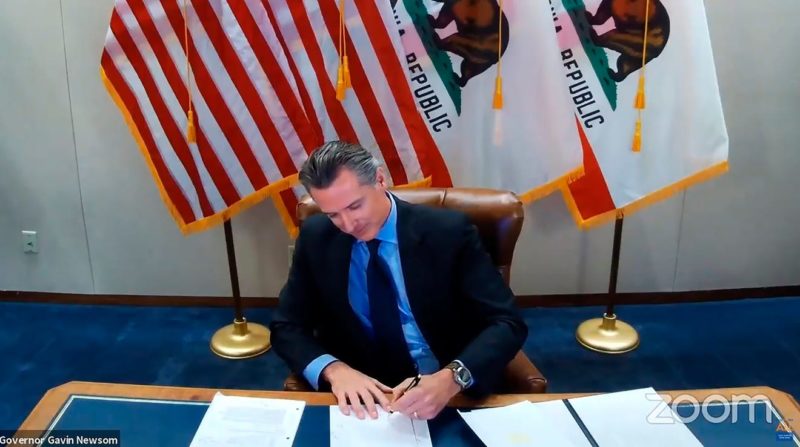Special News Series: Rising Up For Justice! – CA to study, consider reparations for Black residents after landmark law passed
Share
Explore Our Galleries
Breaking News!
Today's news and culture by Black and other reporters in the Black and mainstream media.
Ways to Support ABHM?
Introduction To This Series:
This post is one installment in an ongoing news series: a “living history” of the current national and international uprising for justice.
Today’s movement descends directly from the many earlier civil rights struggles against repeated injustices and race-based violence, including the killing of unarmed Black people. The posts in this series serve as a timeline of the uprising that began on May 26, 2020, the day after a Minneapolis police officer killed an unarmed Black man, George Floyd, by kneeling on his neck. The viral video of Floyd’s torturous suffocation brought unprecedented national awareness to the ongoing demand to truly make Black Lives Matter in this country.
The posts in this series focus on stories of the particular killings that have spurred the current uprising and on the protests taking place around the USA and across the globe. Sadly, thousands of people have lost their lives to systemic racial, gender, sexuality, judicial, and economic injustice. The few whose names are listed here represent the countless others lost before and since. Likewise, we can report but a few of the countless demonstrations for justice now taking place in our major cities, small towns, and suburbs.

To view the entire series of Rising Up for Justice! posts, insert “rising up” in the search bar above.
California to study, consider reparations for Black residents after landmark law passed
By N’dea Yancey-Bragg, USA Today
October 1, 2020

Office of the Governor via Associated Press
California has become the first state to adopt a law that requires a study of how the state could provide reparations to Black residents and the descendants of slaves.
Gov. Gavin Newsom signed the historic law Wednesday that creates a nine-member task force dedicated to coming up with recommendations for what form reparations might take and who would be eligible to receive them. The task force must have its first meeting no later than June 1 and submit its recommendations to the state Legislature one year later…
Reparations could come in the form of cash payments, student loan forgiveness, public works projects or job training. The law doesn’t limit the payment to slavery but requires the task force give special consideration for Black people who are descendants of slaves.
The law was championed by Assemblywoman Shirley Weber, a Democrat and chair of California’s Legislative Black Caucus. Weber said Wednesday that while many are waiting for federal guidance on reparations, California has a responsibility to lead the way.
“California has come to terms with many of its issues, but it has yet to come to terms with its role in slavery,” she said in a news conference after Newsom signed the bill. “After 400 years, we still have that impact.
“If we can do it others can do it also,” she said…
The law was signed amid months of nationwide protests against systemic racism and police brutality, but Weber emphasized that this bill was written long before the death of George Floyd and the onset of the coronavirus pandemic.
After Floyd died in police custody in May, some mayors and local officials proposed ways to examine the impact of slavery and help atone for it, including reparations.

Read the full article here.
More Breaking News here.









Comments Are Welcome
Note: We moderate submissions in order to create a space for meaningful dialogue, a space where museum visitors – adults and youth –– can exchange informed, thoughtful, and relevant comments that add value to our exhibits.
Racial slurs, personal attacks, obscenity, profanity, and SHOUTING do not meet the above standard. Such comments are posted in the exhibit Hateful Speech. Commercial promotions, impersonations, and incoherent comments likewise fail to meet our goals, so will not be posted. Submissions longer than 120 words will be shortened.
See our full Comments Policy here.